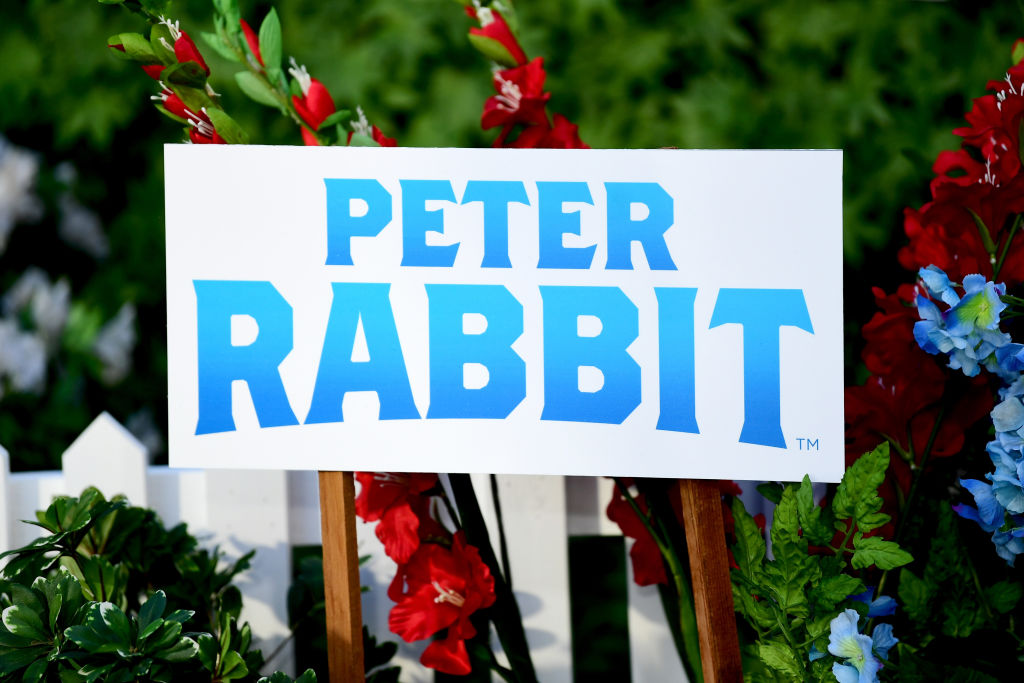A lecturer at a college university in England accused a beloved children’s book author of stealing stories from African slaves.
On May 19, Dr. Emily Zobel Marshall from Leeds Beckett University claimed in an article the ‘Peter Rabbit’ tales by author Beatrix Potter, who died in 1943, plagiarized earlier works.
“As a scholar of folktales and postcolonial literature, however, I spend a lot of time tracing the roots of stories and examining the impact of colonial legacies on them. While rereading another collection of children’s stories featuring the ‘trickster hero’ Brer Rabbit – for my own book on how these folktales were introduced to North America by enslaved Africans – it became clear to me that the similarities between Beatrix Potter’s tales and the Brer Rabbit stories demand further consideration,” Marshall wrote.
She added, “The tales of Brer Rabbit can be traced back to pre-colonial Africa, from where they were transported to the plantations of America by enslaved people. The stories were first adapted for a white audience in the late 19th century by the American journalist and folklorist Joel Chandler Harris.”
Beatrix Potter’s Peter Rabbit story originated in African folktales, expert argues https://t.co/U8z2Q4AO8n
— The Guardian (@guardian) May 19, 2023
Marshall acknowledged in her findings she “was amazed to realise how little comment there has been over the years about the many similarities between Potter’s tales and the Africa-originated Brer Rabbit folktales.”
She further explained the main plot behind Potter’s writings and that it corresponded with the African slaves’ need “to steal food from their masters” for survival.
Marshall called Potter’s attempt to “steer readers away from her sources” as “problematic.”
She also exposed the deception behind Porter’s writings.
“‘Peter Rabbit’ and the rest of Potter’s tales are viewed as quintessentially English stories about characters conjured from Potter’s brilliant mind and inspired by her life in rural England. Yet her tales are, at heart, folktales that originated in Africa before being adapted to expose and reflect the violence, resistance and survival tactics of the plantation life of enslaved people in the Americas,” she revealed.
Marshall expressed her frustrations over the original sources not receiving the credit she feels they deserved and also mentioned the film based on Potter’s life.
“The Beatrix Potter and ‘Peter Rabbit’ brands are highly lucrative. Yet I have found no references to the black American sources of these tales in any of the Beatrix Potter museums and experiences in the UK and US, which attract hundreds of thousands of visitors yearly. There is similarly no mention of these sources in any of the films of her tales, nor in the 2006 Hollywood biopic ‘Miss Potter,'” she continued.
Marshall concluded her article by calling for the original sources of Potter’s writings to be recognized.
“In contrast, through Potter’s silence concerning her sources, the African American tales that helped create her stories are passed over without acknowledgement or celebration. Brer Rabbit must be firmly reasserted into our understanding and appreciation of Beatrix Potter’s tales. For far too long, they have been stealing from his briar patch,” she stated.
This comes after children’s author Roald Dahl’s book “Charlie & The Chocolate Factory” was rewritten to remove any offensive descriptions about the characters in the original text.
In February, the publishing company, Puffin Books released a statement that they would give readers a choice between the rewritten version and the original text.

























 Continue with Google
Continue with Google